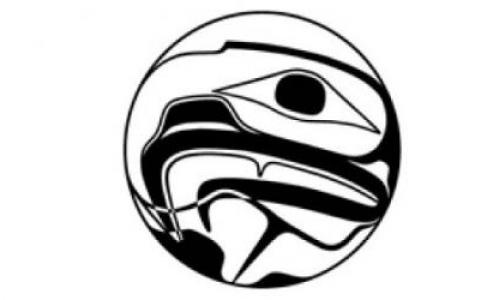
I think that in many ways, there is still so much confusion surrounding Aboriginal people and culture. I know many people are often afraid of doing or saying something offensive, so instead of asking questions and being open, they shut down and stay away. Aboriginal people are still deeply entrenched in the quest for equality and justice from pretty well every institution one can think of; media, education, business, government and simply western society in general. As a person of European decent, it can feel intimidating approaching the subject of ‘Aboriginal’ because one doesn’t want to come across as ignorant, or worse, racist. But in all fairness, how does a ‘white’ person approach a group when they don’t even know how to refer to them correctly, Indian, Native, Aboriginal, Indigenous, First Nations, Coast Salish, Cree, or Nisga’a, for example. There are too many words to get hung up on, too many traditions to misunderstand, too much pain and violence to make up for. I want to first acknowledge this fact. I understand, and I am not the only Indigenous person who understands this, but it is imperative that we move past these little diversions that are discursive in nature and designed to separate us, in order for us to work together.
“Canada is experiencing an Aboriginal baby boom. Aboriginal people are the nation’s youngest and fastest growing human resource. This young, upwardly mobile labour force wants and needs workplace opportunities for training, skills development and employment.”
Through my own research I have found several resources that provide excellent advice for achieving inclusion in the workplace. I have taken these ideas from The WorkBC Employer’s Tool Kit: A Resource for British Columbia Businesses. I have paraphrased the section related to Aboriginal inclusion.
Suggestions for building relationships with Aboriginal Employees
-
Consider life experience in addition to educational milestones: It is a well-known fact that Aboriginal high school graduation rates, as well as post-secondary completion rates are lower amongst Aboriginal people than the Canadian average. This is an issue that has received much attention, and is very slowly changing. However, in the meantime, imagine if you will, the amazing and essential skills, potential, enthusiasm and willingness one earns through important life experiences. Aboriginal people are smart, they work hard and they have so much to contribute, it is important for employers to recognize this when they consider hiring people who may have lower education levels.
-
Be sensitive to social issues: Aboriginal people face many barriers and are still working toward equality and justice. It is important to understand this.
-
Be aware of the role of family: Community is at the heart of most Aboriginal people. Family is an essential part of the overall well being of an individual. Employers can embrace this aspect of Indigenous life by encouraging this connection and understanding family is the priority.
-
Develop trusting relationships: “Some Aboriginal people describe a sense of alienation and discomfort in the traditional workplace. Initiating regular and open communication develops trusting relationships that can enhance retention”
-
Recognize and celebrate success: Recognizing and rewarding the efforts of Aboriginal employees with a supportive work environment, fair pay and sensitivity to cultural differences demonstrates to the community the importance of this labour pool to business success.
These points are important and speak to some of the barriers facing Aboriginal people, but they also begin to bridge cultures. Most frustrations that occur across cultures are due to misunderstanding. I absolutely know that racism exists and this is heartbreaking to me, however, I also know that so much of that anger is related to the misunderstanding of culture. I am guilty of that myself. We don’t know what we just don’t know. For employers seeking Aboriginal people as a resource and for building relationships, recognizing these simple elements is a good beginning.
"Across the province, a number of organizations support training and employment opportunities for Aboriginal people and are eager to partner with British Columbia businesses.To find out which organizations are operating throughout the province, employers can download the Guide To Aboriginal Organizations and Services in British Columbia."
This guide is available at the Ministry of Aboriginal Relations and Reconciliation.
Please look for an upcoming article highlighting some of the questions employers may have that may prevent the transition to inclusive hiring.














